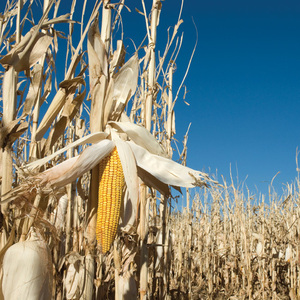USDA maintains forecast for corn use in ethanol in December WASDE

December 9, 2022
BY Erin Krueger
The USDA maintained its forecast for 2022-’23 corn use in ethanol in its latest World Agricultural Supply and Demand Estimates report, released Dec. 9. The 2022-’23 outlook for corn is for lower exports and greater ending stocks.
The USDA lowered its forecast for 2022-’23 corn exports by 75 million bushels as competition from other exporters and relatively high U.S. prices have resulted in slow sales and shipments through early December. With no other use changes, corn ending stocks are raised 75 million bushels. The season-average corn price received by producers is lowered 10 cents to $6.70 per bushel based on observed prices to date.
In the December WASDE, USDA maintained its forecast for 2022-’23 corn use in ethanol at 5.275 billion bushels, down from an estimated 5.326 billion bushels in 2021-’22 and 5.028 billion bushels in 2020-’21.
Foreign corn production is reduced with forecast declines for Ukraine, Russia, the European Union and Vietnam. Ukraine production is sharply lower with reduction to both area and yield as the ongoing conflict and record-setting autumn rainfall have delayed the harvest in key producing oblasts of Poltava, Sumy and Cherkasy. Russia corn production is lowered as harvest delays in the country reduce area expectations.
Advertisement
Advertisement
Corn exports are raised for Ukraine but lowered for the U.S., Russia and the EU. For 2022-’23, corn imports are raised for the EU, but lowered for Canada, Iran, South Korea, Mexico, Vietnam, Philippines and Turkey.
Advertisement
Advertisement
Related Stories
The U.S. EPA on July 8 hosted virtual public hearing to gather input on the agency’s recently released proposed rule to set 2026 and 2027 RFS RVOs. Members of the biofuel industry were among those to offer testimony during the event.
The USDA’s Risk Management Agency is implementing multiple changes to the Camelina pilot insurance program for the 2026 and succeeding crop years. The changes will expand coverage options and provide greater flexibility for producers.
EcoCeres Inc. has signed a multi-year agreement to supply British Airways with sustainable aviation fuel (SAF). The fuel will be produced from 100% waste-based biomass feedstock, such as used cooking oil (UCO).
The USDA’s National Agricultural Statistics Service on June 30 released its annual Acreage report, estimating that 83.4 million acres of soybeans have been planted in the U.S. this year, down 4% when compared to 2024.
SAF Magazine and the Commercial Aviation Alternative Fuels Initiative announced the preliminary agenda for the North American SAF Conference and Expo, being held Sept. 22-24 at the Minneapolis Convention Center in Minneapolis, Minnesota.
Upcoming Events










